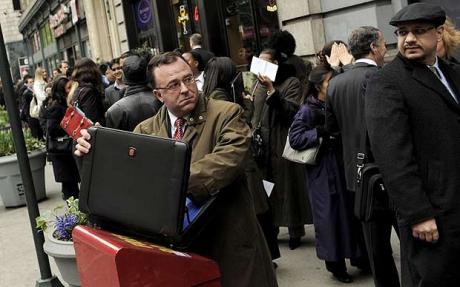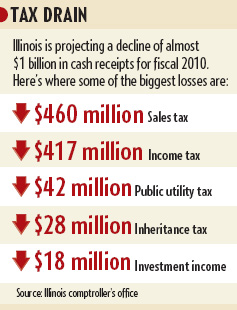This is outrageous! This is education!
Bombard the government with emails and protest, so that these kids can eat what they have grown for lunch.
Those kids developed a connection with nature and that is priceless. Now let them also have the benefit from it. This is so important. There are already enough zombies out there.
The only good thing about this article is that some schools give the food to the kids to take it home with them.
Most school garden produce is forbidden fruit in CPS lunchrooms

Kayla Howard (left) and Destiny Stewart, 7th-grade students at Victor Herbert Elementary school in Chicago, carry plants toward their school’s new garden. (Antonio Perez/Tribune)
It’s harvest time in Chicago Public School gardens full of chubby tomatoes, heavy squash and fragrant basil.
These urban oases, carefully tended by teachers, students and volunteers, range from several square feet to several acres of fruits, vegetables, herbs and flowers, and some schools even grow plants year-round in school greenhouses.
But one thing the more than 40 gardens have in common is that none of the produce ever finds its way into CPS lunchrooms. Instead, because of rules set by the district and its meal provider, the food is sold or given away.
The policies are in place despite the high obesity rate among Illinois children and experts’ concerns that young people are eating few fresh vegetables. Meanwhile, a studies suggest children eat and accept vegetables much more readily when they have helped grow them.
But in a district that touts its use of some local produce in the lunchroom, the most local of all remains forbidden fruit.
Kathleen Merrigan, deputy secretary of agriculture at the U.S. Department of Agriculture, recently toured a CPS school garden at the Academy for Global Citizenship on the Southwest Side. There, two second-grade girls showed her the eggplant, squash and tomatoes they grew, along with the chickens they kept for eggs.
“Ideally, all of those products would make it from the garden to the lunchroom,” Merrigan said.
But rules created by CPS and its meals supplier, Chartwells-Thompson, prevent that from happening.
“In order to use food in the school food program, it would need to meet specific/certified growing practices,” CPS spokeswoman Monique Bond said.
These requirements would include eliminating all “pesticides and insecticide” applications and using only “commercially prepared organic compost and fertilizers,” said Bob Bloomer, regional vice president of Chartwells-Thompson.
Commercial vendors, though, don’t have to abide by these rules. They can sell the district produce treated with several pesticides and grown in nonorganic fertilizer.
But produce grown by the Chicago High School for Agricultural Sciences on its 25-acre farm wouldn’t make the grade because, for example, it treats its corn with a single pesticide.
Instead, the high school ends up selling most of the bounty — including pumpkins, tomatoes, squash, greenhouse basil, farm-raised tilapia, fresh eggs and blueberries. Other schools give away the produce or send it home with kids.





